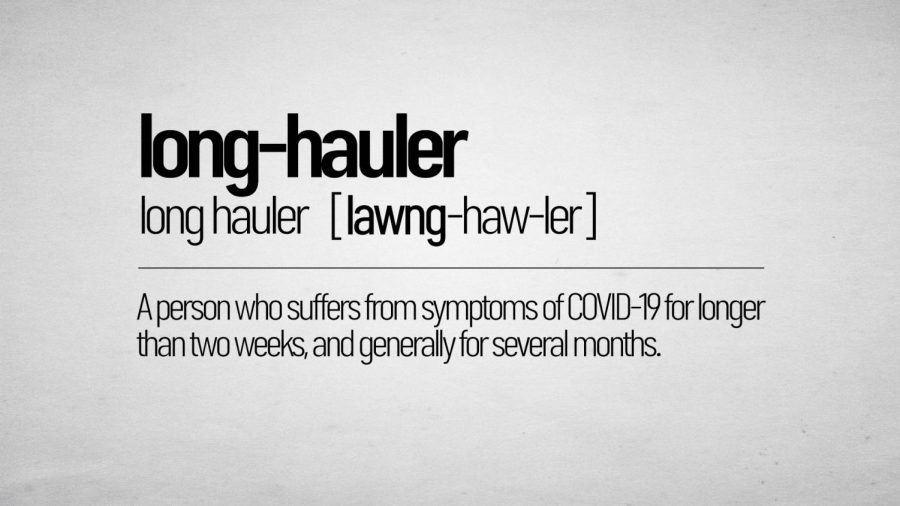New Development of COVID-19 With “Long-Haulers”
Dec 10, 2020
As everyone surely knows, COVID-19 has killed millions of people worldwide. But there has been a new development in the illness. There are people whose symptoms persist even after recovery from covid, known as “long-haulers.” As of right now, a team of British scientists estimates about 10% of COVID-19 patients become long-haulers. This translates to about 3,800,000 long-haulers (as about 38 million people have recovered from Covid).
So far, the long-hauler symptoms are widely inconsistent and don’t necessarily match the symptoms the individual had when they first contracted covid. However, there is a list of the most common symptoms seen until this point; coughing, ongoing and sometimes even debilitating fatigue, body aches, joint pain, shortness of breath, loss of taste and smell (even if this didn’t occur during the height of illness), difficulty sleeping, headaches, and brain fog. Brain fog is described by long-haulers as being on the more debilitating side, as it makes them ‘unusually forgetful’ and makes it difficult to concentrate.
No one has as of yet been able to identify the true cause of these symptoms remaining after a patient has recovered, as the appearance of these long-haulers is still very new, but there are theories as to why this occurs. One theory is that the virus remains in the patient’s body in some small form, and this is what causes the body to continue to react with the symptoms.
Another such theory is that the immune system of the patient continues to overreact despite the infection passing. Doctors say that they don’t know enough about the virus to test for its lingering effects, and before they can tackle long-haulers, they must first tackle where they spawn from, Covid-19.
This also affects every kind of patient, old or young, previously healthy or not. The long-term effects can stay with everyone, and there is no known difference between patients. Doctors have yet to find a common trend between people who become long-haulers and people who recover as expected.
Doctors are also not entirely sure whether or not these long-haulers remain contagious, as their appearance is still relatively new. They do ask that long-haulers work with their doctors to make sure they can keep the people around them safe, just in case. And as previously mentioned, they must first tackle Covid-19 itself before they can tackle why it may cause extended symptoms.




